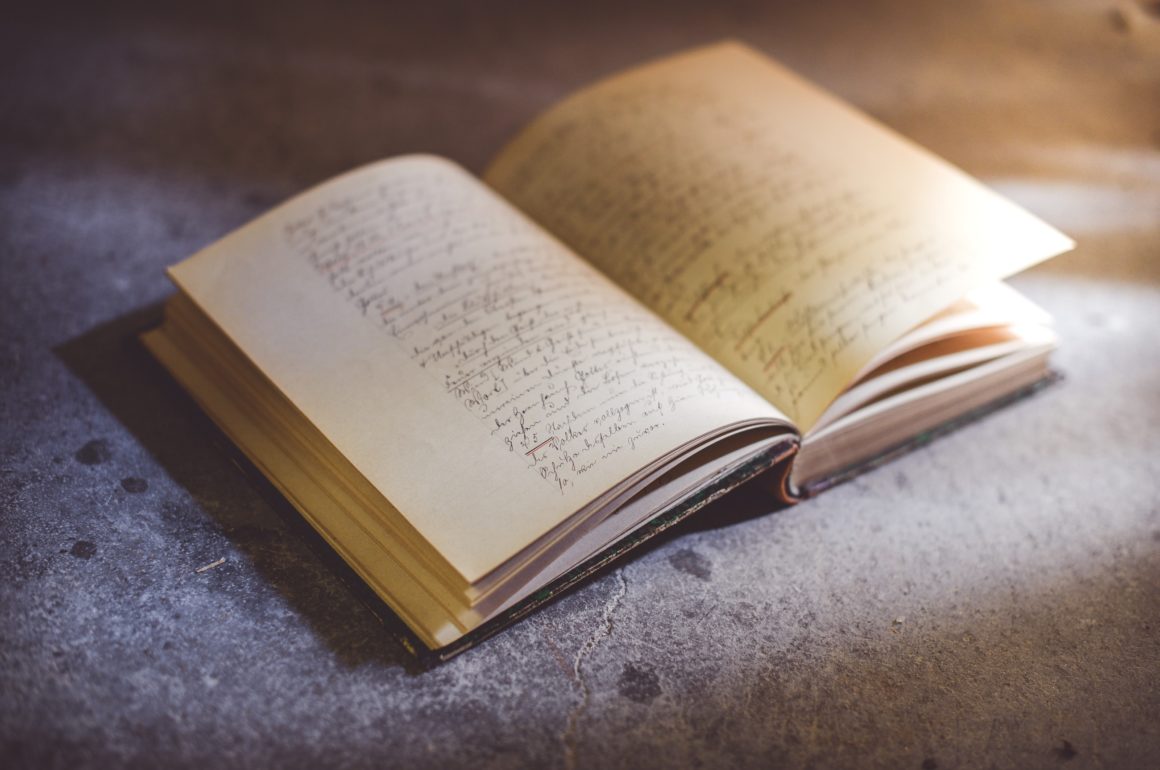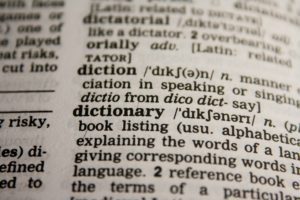
As you pack your bags for a vacation (hopefully in the near future), it’s usual to throw in a phrase book to navigate your way through a new country, or even just order a beer. However, many people have at least a few words of English, so it can be helpful to fall back on, even in countries where it’s not the official language. After all, it’s the most widely spoken language in the world. But what happens when you’re in an English-speaking country but you still don’t understand what they’re saying?
English isn’t the most straightforward language, as it happens. Many countries have put their own stamp on it, after having adapted it over the years. Different cultures have changed it to suit their accent, their customs or even melded it slightly with another lesser-spoken language. So, if you’d like a tasty snack for your luxury journey in South Africa, you’d ask for padkos (travel food), whereas in Australia, you’d ask if there was something for tea (a meal, not a drink). One reason for the variances is that there is no centralized governing body for English, unlike French, which has the Académie Française and Spanish, which is standardized by Real Academia Española.

When you embark on a luxury journey such as Castles and Kingdoms in the UK, you may raise your eyebrows when you hear certain phrases or struggle to understand what you are being asked to do. We’ve decided to gather some frequently used words and phrases from across the English-speaking world that will give you a deeper understanding for more fun travel experiences.
The United Kingdom
Once the largest empire on earth, the United Kingdom is responsible for bringing the English language to most of the world. However, even here you will hear massive disparities in how things are referred to, causing some funny misunderstandings. Discover the country with the British Royale tour and you may need to use some of the following words or phrases.
Barm / tea cake / cob / bap / scuffler – meaning – bread roll
The humble bread roll has many names across the country. If you’re in London, bread roll will suffice, but if you fancy one with your soup in Leicestershire, Derbyshire or Nottingham, then you need to ask for a cob. In Manchester, they say “barm”, over the Pennines in Leeds, they eat tea cakes, whereas further north in Durham and Northumberland, they call them buns. In some parts of Yorkshire, they are still referred to as scufflers. Perhaps keep a handy checklist in your pocket when choosing somewhere for lunch.
I’ll give it a gander – meaning – I’ll have a look at it
Gander is the proper name for a male goose, so if someone says this, you’d be forgiven for thinking that they were about to present some poultry. However, what this actually means is to take a look at something. So, you could bring your car to a garage to have something checked and a British mechanic might say, “I’ll give it a gander and come back to you.”
That’s mint – meaning – very good, cool
When referring to something good, people in the midlands and North of the U.K. often say “mint”. So, if you’d like to fit in with the locals, you can tell them that the VIP tours to York Minister are “mint” and they’ll know exactly what you mean.
Knackered / Cream-crackered – meaning – tired
Although many English words can be traced back to Shakespeare, most people don’t speak in the manner that much of his work is written. Words like tired seem pretty straightforward, but across England, you’ll hear people exclaim about being knackered or cream-crackered, when actually they mean they are tired. Some people also say “shattered” when they need a good night’s sleep.
Wind your neck in – meaning – be quiet or stop complaining
If you’re being told to wind your neck in, you may have said something to upset the other person! This is a phrase that is often used by parents to quiet the complaints of children, or you may overhear it said by one man to another when arguing over soccer in the pub. If you want to stop someone from saying anything else on the matter, a simple “wind your neck in,” should do the trick!
A few sandwiches short of a picnic / not the full shilling – meaning – not right in the head
When someone is described as a few sandwiches short of a picnic, don’t despair, it doesn’t mean that lunch will be sparse. Rather, the person in question likely doesn’t fully grasp everything going on around them. Sometimes they are referred to as “not the full shilling” too.
Ireland
Just across the water and once a part of the British empire, Ireland has long had English as its first language. However, the Irish have got particularly creative with certain words and phrases and even if you can understand the accent, you may not fully comprehend what they mean. However, with their congeniality and genuine helpfulness, Irish people will usually clear it up for you if you ask. If you’re planning to join our Ultimate Ireland journey, you can brush up on some of the following to make your vacation easier.
Pass that yoke – meaning – give me that item, thing, anything you can’t remember
Yoke refers to anything you can’t find the word for right now. So, it may be a screwdriver or a hat, but somehow Irish people always know what the other is looking for when they hear “pass me that yoke there”.
Now we’re sucking diesel – meaning – things are going very well
This is a funny one that always brings a smile to foreign visitors. While on your extraordinary travels around this green isle, you might hear someone say “Now we’re sucking diesel”. This could be in reference to anything at all, from a sports team doing well to making headway on a new project, but what the speaker means is that things are going very well.
Stall the ball – meaning – wait up, or wait a moment
If an Irish person is trying to catch up to you in the street, they may call out to “stall the ball”. This is a gentle request to hang on or wait a moment. It can be used in a variety of circumstances, from waiting to see the outcome of a situation to taking pause in the conversation.
Press – meaning – cupboard
Always a source of confusion, particularly to visitors from just across the water, is the fact that Irish people refer to cupboards as presses. This arises from the cupboard where the boiler/water heater is kept being called “the hot press” in Ireland, so all other cupboards became presses too.
Having the craic – meaning – fun, a laugh
Some travelers might think that Irish people are particularly fond of class A substances, but in fact craic comes from the Gaelic language, and it means fun or a laugh. So, when Irish people are having the craic, it’s a much cleaner and more responsible sort of diversion.
South Africa
Long a melting pot of cultures and abundant natural resources, South Africa offers exceptional travel opportunities for those who venture there. Spectacular South Africa brings guests on unique vacations through astonishing landscapes and nature reserves alive with magnificent wildlife. English is widely spoken throughout the country although there may be words that even native speakers struggle with! The locals have melded words from English and Afrikaans, which is perfectly clear to anyone living there but incomprehensible to visitors. Here are some examples:
Ja, Nee – meaning – Yes, No
Here’s a phrase that can mean a number of things. Sometimes it’s used to agree “Ja, nee, you’re right”, and other times it can indicate hesitancy. Often, when someone doesn’t want to upset you but also doesn’t want to commit to an answer, they’ll simply say “Ja, nee”. So, it all depends on who you’re with and what you’re talking about!
Bra / Bru – meaning – friend or pal
South African’s often greet each other by saying “Hey bra!” or “Hey bru!” Much like the Aussies’ “G’day mate”, it’s a friendly term to people they know. However, they are just as likely to use it with someone they’ve just met to show they’re friendly.
Lekker – meaning – brilliant, fantastic
“Last night was lekker,” is a phrase you might hear after having dinner with some new friends in South Africa. They mean that they had a good time, that it was a great night. It can really be applied to anything to signify that something was good, whether that is a person, place or event.
Shame – meaning – what a pity, or to express disappointment / annoyance
South African’s use the word “shame” probably as frequently as they use “lekker”. It’s often used in response to someone to sympathise if something goes wrong, or to mean “cute”. Honestly, if you don’t know what to say, just say “shame” and your new friends will nod in agreement.
Jol – meaning – a good time, a party
Perhaps your Traveling Concierge may suggest a “jol” or tell you about a journey that was “jol”. This means that some fun is about to happen or has happened. “It was such a jol” means that a great time was had.
Australia
Long part of the Commonwealth, Australia has been using English customs and language for over 200 years. However, the Aussies made the mother tongue their own with brilliant colloquialisms and phrases that set them apart from other English-speaking countries. Add these to your repertoire when enjoying some of the extraordinary travel experiences this continent has to offer.
She’ll be apples – meaning – She’ll be alright, it will be ok
When someone says to you “she’ll be apples”, they aren’t referring to fruit or a nearby orchard. Aussies use this term to denote that something will work out ok. Even the “she” is not meant to be taken literally, as it could just apply to the situation at hand.
Bloody oath – meaning – that’s the truth
Certainly a phrase that makes people think twice is bloody oath. This is something that Australians use to attest that they are telling the truth, or to agree with someone. So, they may be agreeing with you when they say “bloody oath”, even though it sounds like an insult!
Cactus or Cark it – meaning – it’s broken or it’s died
While on your travels, if you take your phone out and it’s had a reaction to the hot sun of Australia, your friend may ask “Is it cactus?” Many people would react that no, it’s certainly not a prickly plant, actually the correct answer would be “yes, I think it’s carked it.”
On ya – meaning – well done
In response to a job well done, or something performed well, an Aussie mate might say “On ya”. This is a word of positive encouragement and should be received with thanks.
Other Quirky Anomalies
Luxury Trips to other destinations will introduce you to other strange words that you may not get immediately. For instance, in Canada you may be offered a “scoff” (meal) when you’re hungry and in Singapore if someone says “catch no ball” that means they don’t understand you. Even across America, there are words and phrases that will baffle those who’ve spoken English all their lives – from roundabouts being called “rotaries” in New England to directing you to the “catty corner” (diagonally opposite) in the south of the country. What strange words have you picked up on your world travels?











Leave a Comment